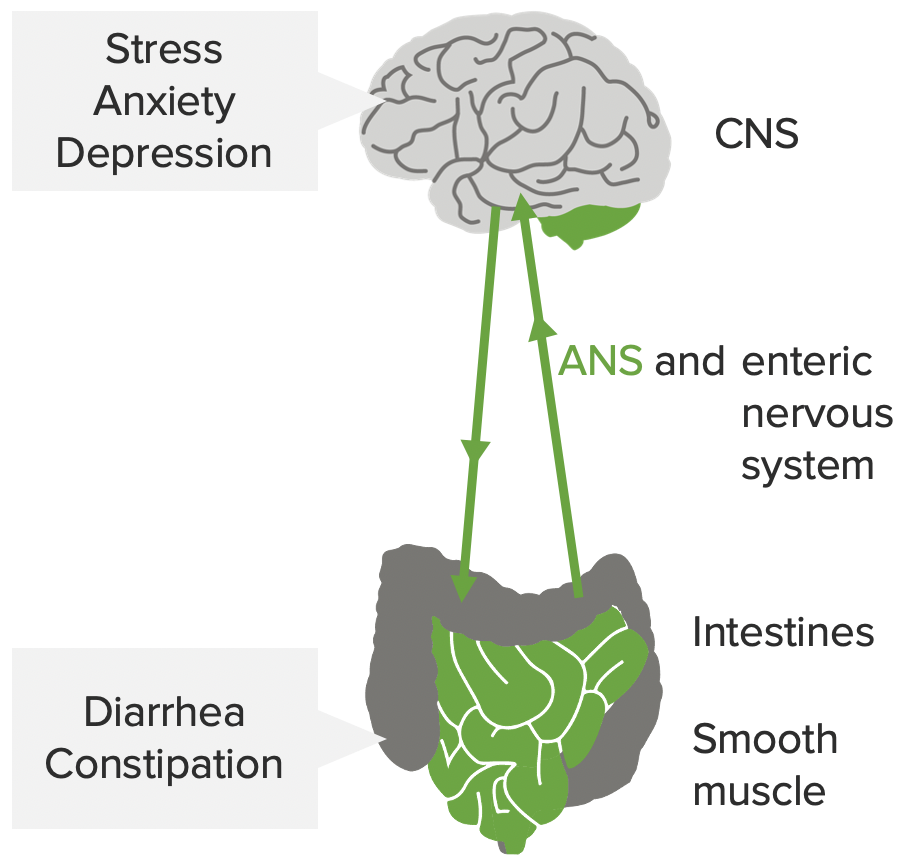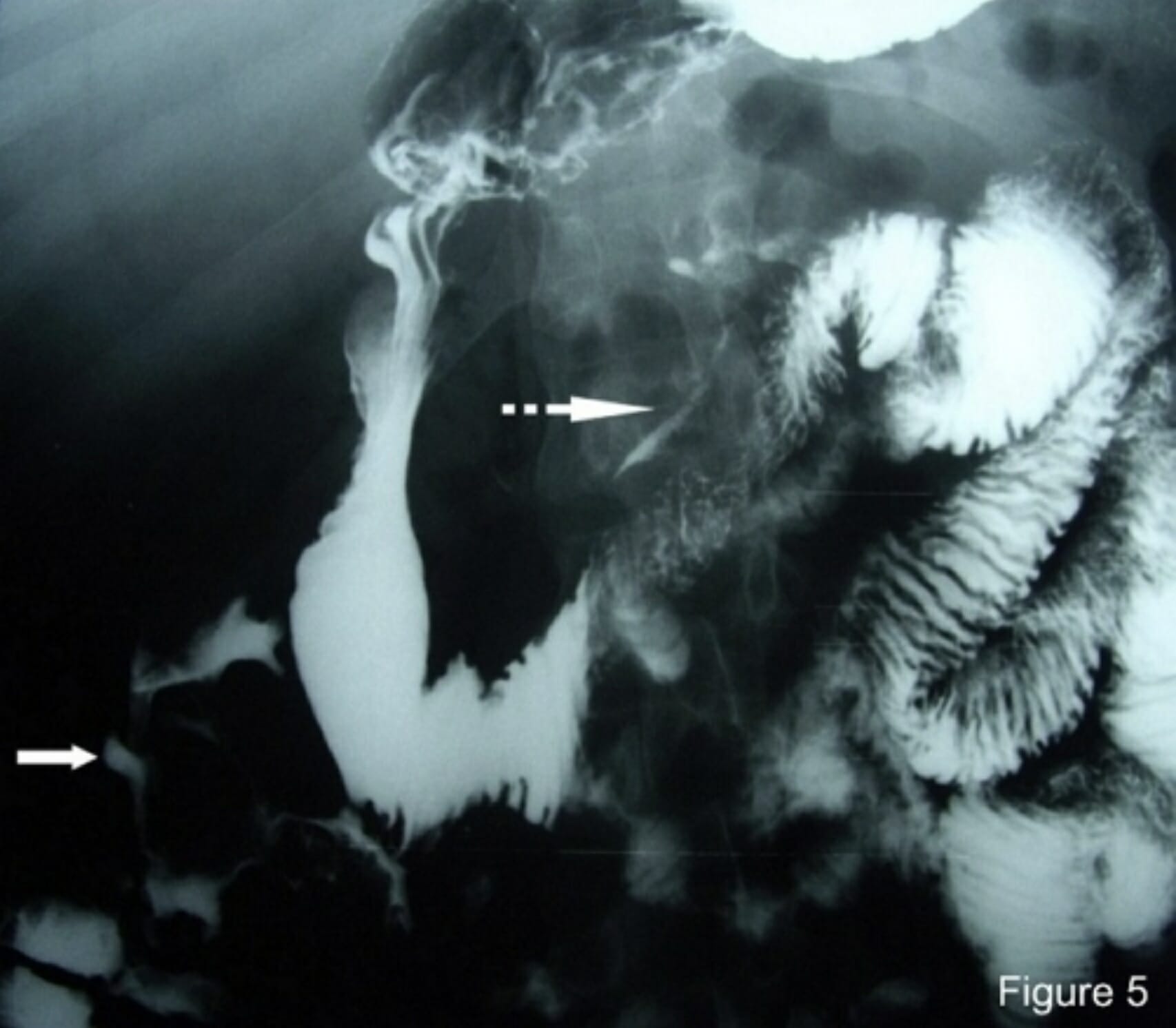Playlist
Show Playlist
Hide Playlist
Irritable Bowel Syndrome (IBS) with Case
-
Slides Gastroenterology 02 Diarrhea.pdf
-
Download Lecture Overview
00:00 Let's move to our next case A 32-year-old woman is seen for 6 months of intermittent diarrhea alternating with periods of constipation. 00:10 She frequently passes mucus with straining and complains of abdominal discomfort and bloating that it is relieved after she has a bowel movement She has no fever, bloody stool, or weight loss. 00:22 On exam, there are normal vitals. 00:24 Her abdomen is diffusely tender to light palpation but without rebound or guarding. 00:29 And rectal exam is normal. 00:32 Her lab studies show a normal electrolytes and a normal hemoglobin What is the most likely diagnosis? So she has chronic intermittent diarrhea without any alarm features She does have abdominal pain that is associated with her bowel movements which is a good clue And her normal exam and labs is just potentially a functional disorder by which we mean, a disorder in which there is no organic or structural explanation for their disease. 01:06 So in this case again, her normal exam and labs indicate a functional disorder and the most likely functional disorder is irritable bowel syndrome or IBS. 01:17 Let's talk a bit more about more about IBS. 01:19 As we said, it's a functional bowel disorder that presents with a change in the bowel habits and an important distinguishing factor here is that patients have associated abdominal pain or distention. 01:31 They have mucousy stools and they have relief or worsening of their pain with bowel movements. 01:38 Their symptoms tend to worsen with stress. 01:41 We don't actually know the exact pathophysiology of IBS But what we do suspect is that things like stress, anxiety and depression that affect the central nervous system can lead to many different interactions with the autonomic nervous system and the enteric nervous system. 02:00 With these interactions, we get changes in contraction of the smooth muscle of our intestines thus leading to symptoms like diarrhea or constipation. 02:11 Because this is such a difficult diagnosis to make, it is a diagnosis of exclusion. 02:18 And the treatment is primarily with reassurance, and you may give things like fiber supplements, or antidiarrheals or laxatives depending on which symptom predominates.
About the Lecture
The lecture Irritable Bowel Syndrome (IBS) with Case by Kelley Chuang, MD is from the course Approach to Patients with GI Symptoms.
Included Quiz Questions
Which of the following can be used for the treatment of irritable bowel syndrome?
- Fiber supplements
- Antiretrovirals
- Infliximab
- Aspirin
- Methotrexate
Customer reviews
4,0 of 5 stars
| 5 Stars |
|
2 |
| 4 Stars |
|
0 |
| 3 Stars |
|
0 |
| 2 Stars |
|
1 |
| 1 Star |
|
0 |
I also don't know why this course is rated poorly. It really helps to give a great overview. The lecturer also answers with great detail to our questions.
I dont know why this is rated poorly. This is excellent and explained well in terms of symptomology and diagnosis.
The lectures of GIT are very short and few, Respiratory and CVS are very good , And Other doctors explain everything more clearly and in detail but GIT Every lecture is about a minute or two And the doctor does not explain almost anything she only reads what is written in the lecture .





